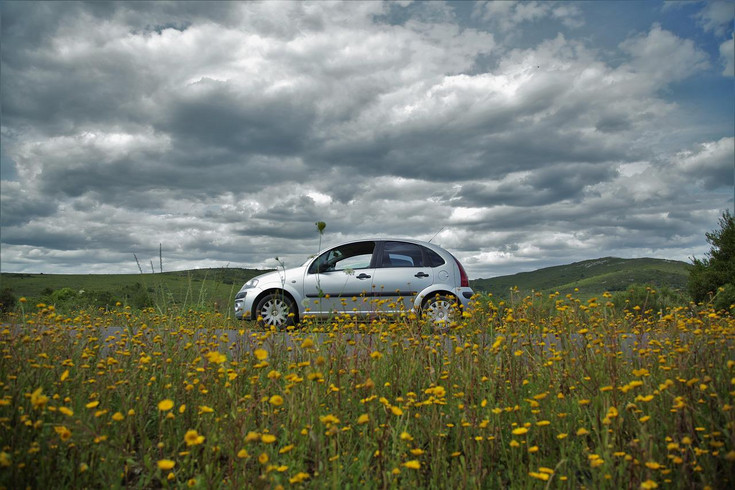27.07.2022 - New ideas for smart mobility in rural regions
EU project with BOKU participation supports people in peripheral areas to develop needs-based transport solutions.

Life in the countryside: poor public transport connections and long distances. New concepts for smart mobility are needed. (c) pixabay
Those who choose to live in the country have many advantages in mind. But mobility is not one of them. To improve this, the EU co-funded SMACKER project supported six pilot regions in Central Europe for three years to redesign their transport offer based on user* needs, involving local partners.
SMACKER started its activities in 2019 in six European countries - the Bologna-Apennine region (Italy), the city of Gdynia (Poland), Praha-Suchdol (Czech Republic), the rural area of the Pomurje region (Slovenia), the city of Budapest (Hungary) and in the Osttirol region (Austria) - and was funded by the Interreg Central Europe budget with a total of 2.1 million euros.
Project partners for Austria were RegionsManagement Osttirol and the Institute of Transport at the University of Natural Resources and Applied Life Sciences, Vienna. "We developed behavioral change campaigns to encourage people to use public transport services instead of their own cars and assisted in the monitoring and evaluation of needs-based mobility services," says project manager Roman Klementschitz.
The pilot project, which was tailored to the region of East Tyrol, specifically comprised 3 aspects:
- Socio-scientific accompaniment: Here, a municipality was accompanied in its mobility concept creation through surveys and workshops, and a plan of action was developed, which is now available to all municipalities in the region and can be adopted in an appropriately adapted form.
- Information about mobility offers: Thanks to the newly created website www.mobilitaet.osttirol.com, holistic mobility information can be used: As a first step towards MaaS (Mobility as a Service), it is now possible for the first time to book accommodation together with mobility offers on one platform. Furthermore, mobility training courses were held for tourism employees so that they can now provide competent information.
- E-car sharing and strengthening e-mobility: 4 new e-car sharing locations were set up in 4 different communities and are now available to guests and residents alike. Nudging measures and a communication strategy were used to promote these locations and build up user groups.
"The cooperation on the topic of on-demand transport in Europe offers us the chance to look at mobility projects on a local level from different perspectives and to scientifically investigate the various drivers and barriers in the respective context," emphasizes Astrid Gühnemann, head of the Institute of Transport at BOKU.
After three years of intensive work - and after successfully overcoming the challenges posed by the COVID19 pandemic, which delayed some activities but did not prevent the full achievement of the project's goals - SMACKER is now complete. The added value of the project through the SMACKER guidelines will remain available through the project toolbox: https://www.smacker-toolbox.eu/.
At the SMACKER final conference at the University of Natural Resources and Applied Life Sciences, Vienna, project partners*, external experts* and people interested in the project from all countries met again to discuss the results of the six SMACKER pilot projects (and those of the ten follower regions) and to analyze the project results from the perspective of key stakeholders* and experts*.
For complete information, please visit: www.interreg-central.eu/smacker
Contact:
DI Dr. Roman Klementschitz
University of Natural Resources and Applied Life Sciences Vienna
Institute for Transport Economics
Email: roman.klementschitz@boku.ac.at
Phone: +43 1 47 654 / 85618
